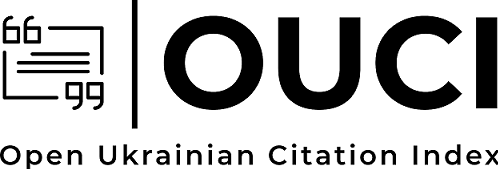Patronage as a Means of Employment for Daughters in Educational Institutions of Ukraine at the Turn of the 19th — 20th Century
DOI:
https://doi.org/10.28925/2524-0757.2025.14Keywords:
patronage, recommendation letter, employment, women’s educational institutions, female teacher, gymnasium graduateAbstract
Patronage has existed in all societies from antiquity to the present day. The implicit meanings of expressions such as “one’s own people” and “good connections” are readily understood and utilized by the population as needed. This article aims to examine the role of patronage in the employment of women in the educational sphere of Ukraine at the turn of the 19th — 20th century. The study is based on the administrative correspondence of the Office of the Trustee of the Kyiv Educational District, specifically recommendation letters from male patrons. It has been established that patronage extended even to daughters who, upon graduating from gymnasium, obtained pedagogical qualifications. The stable employment of adult daughters was crucial to family well-being, prompting older family members to mobilize their social connections. Intense competition in the labor market among female gymnasium graduates led many to seek patrons who could facilitate their appointment to permanent positions in educational institutions. The study identifies patrons as both local high-ranking officials — such as the head of the Kyiv Provincial Gendarmerie Administration and the director of the Kyiv branch of the State Bank — and metropolitan bureaucrats, including senators. The effectiveness of patronage depended on the influence that one patron, as the author of a recommendation letter, held in the perception of another — the Trustee of the Kyiv Educational District. A distinct category of “invisible” patrons is also identified — heads of educational institutions who were consulted in advance regarding prospective candidates. The search for patrons correlated with factors such as the father’s service in government institutions and neighborly relations with local property owners. The patronage mechanism, designed to maximize the likelihood of success, operated on two levels. The first was the district administration level, requiring the approval of the district trustee and the head of his office. The second was the local administration level, which involved securing an agreement with the head of the educational institution regarding the candidate’s appointment.
Downloads
References
Afanasev, M. N. (2000). Klientelizm i rossiiskaia gosudarstvennost: Issledovanie klientarnykh otnoshenii, ikh roli v evolyutsii i upadke proshlykh form rossiiskoi gosudarstvennosti, ikh vliianiia na politicheskie instituty i deiatelnost vlastvuiushchikh grupp v sovremennoi Rossii. Moscow: Moskovskii obshchestvennyi nauchnyi fond [in Russian].
Babenko, K. A., Didenko, N. H., Kondrashova, M. V., Lazarenko, S. Zh., Khrimli O. H., & Yakovets, N. I. (2016). Proiavy koruptsii v systemi osvity: zapobihannia ta protydiia: navchalno-metodychnyi posibnyk. Kyiv: MP Lesia [in Ukrainian].
Budzar, M., Kovalov, Ye., & Tereshchenko, D. (Eds.). (2019). Senatorska reviziia Kyivskoi ta Chernihivskoi hubernii: zi shchodennyka O. O. Polovtsova (zhovten 1880 — traven 1881). Kyiv: StreamARLine [in Ukrainian].
Drach, O. (2023). The Uniform of Women’s Gymnasium Employees in the Vision of the Heads of Institutions in Kyiv Educational District (late 19th — early 20th century). Kyivski istorychni studii / Kyiv Historical Studies, 2(17), 54–63 [in Ukrainian]. https://doi.org/10.28925/2524-0757.2023.27
Drach, O. (2024). Could the Marriage of a Female Educator Be Grounds for Dismissal? Opinions of Educational Institution Administrators at Kyiv Educational District in the Early 20th Century. Kyivski istorychni studii / Kyiv Historical Studies 1(18), 6–19 [in Ukrainian]. https://doi.org/10.28925/2524-0757.2024.11
Drach, O. (2024). Gender Aspects of the Professionalism of Female Teachers in Ukraine within the Context of Expanding Employment Rights at the Beginning of the 20th Century. Kyivski istorychni studii / Kyiv Historical Studies, 2(19), 14–22 [in Ukrainian]. https://doi.org/10.28925/2524-0757.2024.22
Drach, O. O. (2011). Vyshcha zhinocha osvita v Rosiiskii imperii druhoi polovyny 19 — pochatku 20 stolittia.. Cherkasy: Vertykal [in Ukrainian].
Eyzenshtadt, Sh. N., & Roniger, L. (2016). Patron-klientskie otnosheniya kak model strukturirovaniia sotsialnogo obmena. In N. Volynchik (Ed.) Patron-klientskiye otnosheniia v istorii i sovremennosti: khrestomatiia. Moscow, Politicheskaya entsiklopediya Publ, 366–413 [in Russian].
Fediukin, I., & Zitser, E. A. (2011). For Love and Fatherland: Political Clientage and the Origins of Russia’s First Female Order of Chivalry. Cahiers du monde russe, (52/1), 5–44 [in English]. https://doi.org/10.4000/monderusse.9320
Fitzpatrick, Sh. (1999). Everyday Stalinism: Ordinary Life in Extraordinary Times: Soviet Russia in the 1930s. Oxford University Press [in English].
Leonov, M. M. (2009). Salon V. P. Meshcherskogo: patronat i posrednichestvo v Rossii rubezha XIX–XX vv. Samara: Izd-vo Samar. nauch. tsentra RAN [in Russian].
Leonov, M. M. (2012). “Taktika gostinykh”: protezhirovanie v poreformennoi Rossii. In N. L. Pushkareva (Ed.). Sotsialnaia istoriia: Yezhegodnik. 2011. Saint-Petersburg, Aleteia, 12–24 [in Russian].
Marwick, A. (2001). The New Nature of History Knowledge, Evidence, Language. London: Palgrave [in English].
Mironov, B. N. (2000). Sotsialnaia istoriia Rossii perioda imperii (XVIII — nachalo XX v) (Vols. 1–2). Saint-Petersburg: Dmitriy Bulanin, v. 2 [in Russian].
Novitskiy, V. D. (1991). Iz vospominanii zhandarma. Moscow: Izd-vo MGU [in Russian].
Padalka, S. (2017). Public Mentality as a Factor in the Abuse of Bribery in the Right-Bank Ukraine in the second half of the XIX — early XX century. Naukovi pratsi istorychnoho fakultetu Zaporizkoho natsionalnoho universytetu, 49, 111–114 [in Ukrainian].
Padalka, S. (2021). Khabarnytstvo v seredovyshchi imperskoho chynovnytstva Pravoberezhnoi Ukrainy (druha polovyna ХIХ – pochatok ХХ st.): peredumovy ta sotsialni chynnyky [Bribery in the Environment of the Imperial Officials Right-Bank Ukraine (second half of XIX — early XX century): Prerequisites and social factors]. Svit Klio / Clio World, 2(1), 5–13 [in Ukrainian].
Padalka, S. S. (2018). Bribery in Right-Bank Ukraine: Socio-historical manifestations, consequences and means of counteraction (the late 19th to the beginning of the 20th century). [PhD dissertation, National Drahomanov Pedagogical University] [in Ukrainian].
Pasko, Ya. (2010). Istorychni aspekty urbanizatsii. In O. K. Mikheieva (Ed.). Sotsiolohiia mista: navchalnyi posibnyk, Donetsk: Vyd-vo “Noulidzh” [in Ukrainian].
Shandra, V., & Arkusha, O. (2022). Ukraina v XIX stolitti: doba modernizatsii. In V. Smolii (Ed.). Kyiv: Akademperiodyka [in Ukrainian]. https://doi.org/10.15407/akademperiodyka.466.706
Shandra, V. S. (2008). Derzhavna sluzhba v ukrainskykh huberniiakh Rosiiskoi imperii. In S. V. Kulchytskyi (Ed.). Narysy istorii derzhavnoi sluzhby v Ukraini, 114–128 [in Ukrainian].
Strannolyubskiy, N. (1890). Sovremennye nuzhdy vysshego zhenskogo professionalnogo obrazovaniya. Russkaya shkola, 3, 48–78 [in Russian].
Yisluu, A.E. (2018). Pryznachennia chynovnykiv na derzhavni posady v period pravlinnia Mykoly I (1825–1855): mizh pokrovytelstvom i zdibnostiamy. Arkhivy Ukrainy, 5–6, 81–90 [in Ukrainian].
Published
How to Cite
Issue
Section
License
Copyright (c) 2025 Оксана Драч

This work is licensed under a Creative Commons Attribution-NonCommercial-ShareAlike 4.0 International License.
Authors who publish in this journal retain the right of authorship of the work and give to the journal right of first publication of this work under the conditions of Creative Commons: Attribution-NonCommercial-ShareAlike 4.0 International (CC BY-NC-SA 4.0), which allows others freely distribute the work published with reference to the authors of the original work and the first publication of this magazine.














